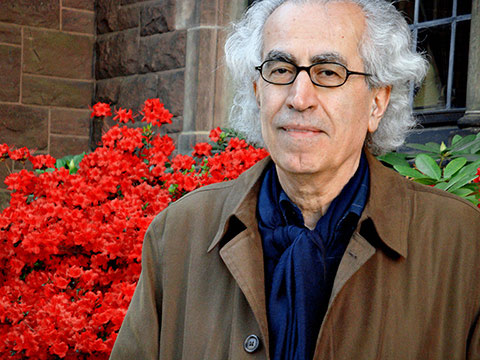In the many tributes and memories that poured in for Amir Hassanpour after his death at 73 from cancer this summer, there was one that showed the astonishing reach of his scholarship on Kurdish nationalism and language. An old friend wrote that when she mentioned his name to a Kurdish refugee she was teaching, the girl knew all about Hassanpour – despite having been on the move and in camps for years.
The Kurdish question – which refers to the fact that the Kurdish people do not have a homeland – was central to Hassanpour’s life and career. He was born in 1943 in the Kurdish city of Mahabad in western Iran and attended the University of Tehran in the early 1960s. During these formative years, he became involved in the Iranian student movement and was introduced to Marxism.
Hassanpour started graduate studies in the U.S. in 1975, but returned home shortly after to play a significant role in the early years of the Iranian Revolution as a secular, leftist revolutionary. When Iran became an Islamic republic in 1979, Hassanpour, his wife Shahrzad Mojab – now a prof at OISE – and their newborn son had to leave Iran for their safety.
Throughout his career, he wrote and published extensively on the Kurdish question and on social movements, diaspora, genocide and Marxist-feminist theory. In all of this work, says U of T colleague Mohamad Tavakoli-Targhi, there was an “unwavering commitment to social justice and equality.”
Hassanpour joined U of T’s Department of Near and Middle Eastern Civilizations in 1999 after teaching at the University of Windsor and Concordia University. (The department is now raising funds to establish an annual lecture in his honour.) He was a tenacious debater with strong views, says chair Tim Harrison. “But he never lost sight of the collegial spirit. Though colleagues may not always have agreed with his positions, he was uniformly respected and appreciated.”
To students, Hassanpour was a beloved teacher and mentor. “He embodied not only dedication, but also a passionate engagement,” says Harrison. “He connected with students on a one-on-one level, and it made him very popular.”
A memorial took place in July at Innis College (home of Cinema Studies) – which was special to him because of his love of film. His son, Salah, shared this passion, along with a great appreciation for Star Trek. The TV show was “interested in imagining a different future, a far better one than today,” he says, “much like my father himself.”






